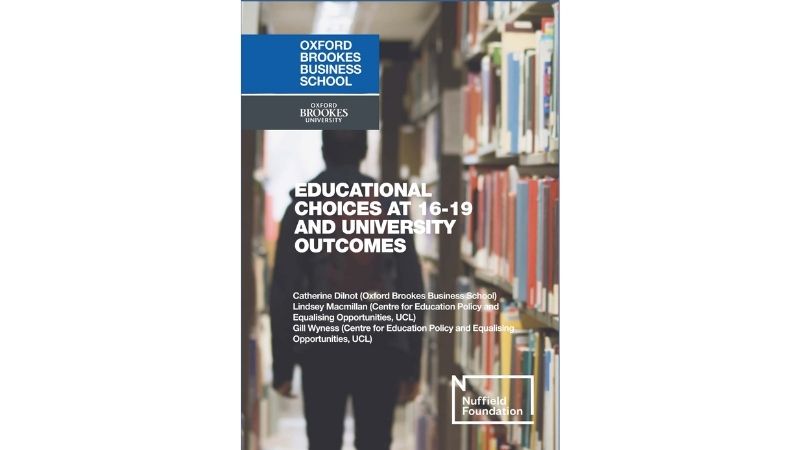Our overarching aim is to understand the relationships between university entry qualifications and subjects, socio-economic status (SES) and university outcomes, with the hope of mitigating the vulnerability of lower SES students to three adverse outcomes at university. We address this aim in three sections.
Increasing numbers of students are entering university with ‘applied general’ qualifications such as BTECs. This has been hailed as a widening participation success as these students are more likely to come from disadvantaged backgrounds than those with ‘academic qualifications' such as A-levels. But are those entering with such qualifications more likely to struggle at university? The project will start by examining whether these students are at greater risk of adverse outcomes than those with ‘academic qualifications’, and the extent to which different choices of qualification types accounts for the differences in adverse outcomes we see between more and less privileged students.
Second, even amongst students entering university with A-levels, there are differences in the sorts of A-levels taken. More disadvantaged students are less likely to take the more traditional ‘facilitating’ subjects which highly selective universities suggest keep options open for admission and have come to be seen as ‘preferred’. These students are more likely to take subjects such as law, physical education or accounting which may be directly relevant to their degree course, but are usually not required for entry, and some universities describe as ‘less effective preparation’. This project aims to discover whether having preferred subjects seems protective against adverse outcomes as students progress through university, and conversely, whether having ‘less effective preparation’ subjects is related to increased chances of struggling.
Third, we drill down to eight popular university degree subjects which commonly don’t have entry subject pre-requisites to investigate whether having a related A-level or other qualification is protective against adverse outcomes (for example law A-level for a law degree), or whether ‘preferred’ A-levels such as mathematics, even if not required, seem to offer better preparation.
The intended outcomes are to provide evidence to:
- School and college students, mature entrants and those who advise them on subjects and qualifications which are likely to help them succeed at university
- Universities to design appropriate support and interventions for students likely to be at higher risk of poor outcomes related to entry subject choices and qualifications
- Universities on the association of successful outcomes and particular subjects and qualifications, for use in setting course pre-requisites and entry requirements between different subjects, particularly given the current interest in contextual admissions
- Policy makers in determining 16-19 curricula and pathways.
Whilst the provision of this evidence is useful for all students, those from lower SES backgrounds are particularly likely to benefit from it if they are more likely to take subjects and qualifications which are found to provide less effective preparation for success at university.









